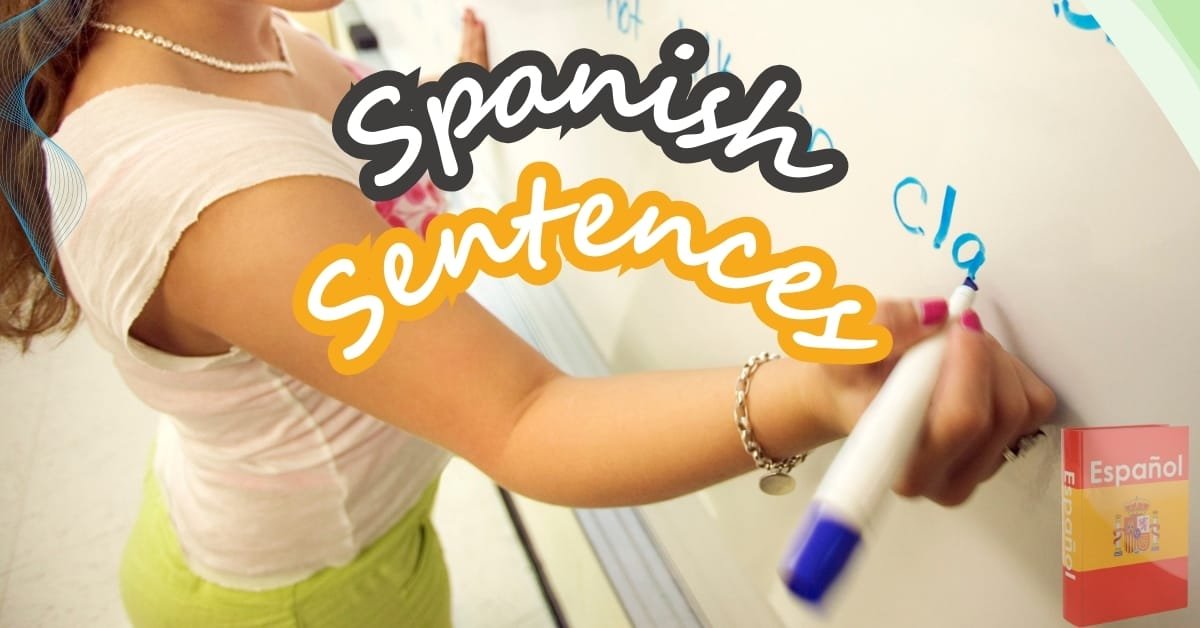Learning Spanish means diving deep into its verbs. Verbs are the backbone of any sentence, and as we learn spanish often find ourselves overwhelmed with the conjugations variety.
This step becomes much easier when you focus on the verbs that matter most. Starting with the most common ones makes a big difference. Mastering just the core Spanish verbs can open the door to fluency. These are high-frequency, practical, and essential for everyday conversations.
This article will guide you through the top 20 Spanish verbs, their present tense conjugations, and useful example sentences for real-life context. These high-frequency verbs are practical, versatile, and key to holding everyday conversations with confidence. Let’s simplify verb learning and get you speaking faster—starting now.
1. Ser – To be (essential nature, permanent)
| Pronoun | Conjugation |
|---|---|
| Yo | soy |
| Tú | eres |
| Él/Ella/Usted | es |
| Nosotros/as | somos |
| Vosotros/as | sois |
| Ellos/as/Ustedes | son |
Example:
Yo soy estudiante de español.
(I am a Spanish student.)
2. Estar – To be (temporary states or locations)
| Pronombre | Conjugación |
|---|---|
| Yo | estoy |
| Tú | estás |
| Él/Ella/Usted | está |
| Nosotros/as | estamos |
| Vosotros/as | estáis |
| Ellos/as/Ustedes | están |
| Yo estoy | Tú estás | Él está | Nosotros estamos | Vosotros estáis | Ellos están |
Example:
Estamos en casa.
(We are at home.)
Learn more about the To be verb in spanish in our challenge about Ser vs Estar
3. Tener – To have
| Pronombre | Conjugación |
|---|---|
| Yo | tengo |
| Tú | tienes |
| Él/Ella/Usted | tiene |
| Nosotros/as | tenemos |
| Vosotros/as | tenéis |
| Ellos/as/Ustedes | tienen |
Ejemplo: Tengo hambre.
(I’m hungry.)
Here’s a video of the present-tense conjugation of this verb in Spanish from Spain.
4. Hacer – To do, to make
| Pronombre | Conjugación |
|---|---|
| Yo | hago |
| Tú | haces |
| Él/Ella/Usted | hace |
| Nosotros/as | hacemos |
| Vosotros/as | hacéis |
| Ellos/as/Ustedes | hacen |
Ejemplo: ¿Qué haces hoy?
(What are you doing today?)
5. Ir – To go
| Pronombre | Conjugación |
|---|---|
| Yo | voy |
| Tú | vas |
| Él/Ella/Usted | va |
| Nosotros/as | vamos |
| Vosotros/as | vais |
| Ellos/as/Ustedes | van |
Ejemplo: Voy al supermercado.
(I’m going to the supermarket.)
6. Decir – To say, to tell
| Pronombre | Conjugación |
|---|---|
| Yo | digo |
| Tú | dices |
| Él/Ella/Usted | dice |
| Nosotros/as | decimos |
| Vosotros/as | decís |
| Ellos/as/Ustedes | dicen |
Ejemplo: Ella dice la verdad.
(She tells the truth.)
7. Poder – Can, to be able to
| Pronombre | Conjugación |
|---|---|
| Yo | puedo |
| Tú | puedes |
| Él/Ella/Usted | puede |
| Nosotros/as | podemos |
| Vosotros/as | podéis |
| Ellos/as/Ustedes | pueden |
Ejemplo: ¿Puedes ayudarme?
(Can you help me?)
8. Ver – To see
| Pronombre | Conjugación |
|---|---|
| Yo | veo |
| Tú | ves |
| Él/Ella/Usted | ve |
| Nosotros/as | vemos |
| Vosotros/as | veis |
| Ellos/as/Ustedes | ven |
Ejemplo: Veo la televisión.
(I watch TV.)
9. Dar – To give
| Pronombre | Conjugación |
|---|---|
| Yo | doy |
| Tú | das |
| Él/Ella/Usted | da |
| Nosotros/as | damos |
| Vosotros/as | dais |
| Ellos/as/Ustedes | dan |
Ejemplo: Te doy mi número.
(I give you my number.)
10. Saber – To know (facts)
| Pronombre | Conjugación |
|---|---|
| Yo | sé |
| Tú | sabes |
| Él/Ella/Usted | sabe |
| Nosotros/as | sabemos |
| Vosotros/as | sabéis |
| Ellos/as/Ustedes | saben |
Ejemplo: No sé la respuesta.
(I don’t know the answer.)
11. Querer – To want / to love
| Pronombre | Conjugación |
|---|---|
| Yo | quiero |
| Tú | quieres |
| Él/Ella/Usted | quiere |
| Nosotros/as | queremos |
| Vosotros/as | queréis |
| Ellos/as/Ustedes | quieren |
Ejemplo: Queremos viajar a México.
(We want to travel to Mexico.)
12. Llegar – To arrive
| Pronombre | Conjugación |
|---|---|
| Yo | llego |
| Tú | llegas |
| Él/Ella/Usted | llega |
| Nosotros/as | llegamos |
| Vosotros/as | llegáis |
| Ellos/as/Ustedes | llegan |
Ejemplo: Llego a las ocho.
(I arrive at eight.)
13. Pasar – To happen, to pass
| Pronombre | Conjugación |
|---|---|
| Yo | paso |
| Tú | pasas |
| Él/Ella/Usted | pasa |
| Nosotros/as | pasamos |
| Vosotros/as | pasáis |
| Ellos/as/Ustedes | pasan |
Ejemplo: ¿Qué pasa?
(What’s happening?)
14. Deber – Should, to owe
| Pronombre | Conjugación |
|---|---|
| Yo | debo |
| Tú | debes |
| Él/Ella/Usted | debe |
| Nosotros/as | debemos |
| Vosotros/as | debéis |
| Ellos/as/Ustedes | deben |
Ejemplo: Debes estudiar más.
(You should study more.)
15. Poner – To put, to place
| Pronombre | Conjugación |
|---|---|
| Yo | pongo |
| Tú | pones |
| Él/Ella/Usted | pone |
| Nosotros/as | ponemos |
| Vosotros/as | ponéis |
| Ellos/as/Ustedes | ponen |
Ejemplo: Pongo la mesa.
(I set the table.)
16. Quedar – To stay, to remain
| Pronombre | Conjugación |
|---|---|
| Yo | quedo |
| Tú | quedas |
| Él/Ella/Usted | queda |
| Nosotros/as | quedamos |
| Vosotros/as | quedáis |
| Ellos/as/Ustedes | quedan |
Ejemplo: Nos quedamos en casa.
(We stay at home.)
17. Hablar – To speak
| Pronombre | Conjugación |
|---|---|
| Yo | hablo |
| Tú | hablas |
| Él/Ella/Usted | habla |
| Nosotros/as | hablamos |
| Vosotros/as | habláis |
| Ellos/as/Ustedes | hablan |
Ejemplo: ¿Hablas español?
(Do you speak Spanish?)
18. Llevar – To carry, to wear
| Pronombre | Conjugación |
|---|---|
| Yo | llevo |
| Tú | llevas |
| Él/Ella/Usted | lleva |
| Nosotros/as | llevamos |
| Vosotros/as | lleváis |
| Ellos/as/Ustedes | llevan |
Ejemplo: Llevo una chaqueta.
(I’m wearing a jacket.)
19. Encontrar – To find
| Pronombre | Conjugación |
|---|---|
| Yo | encuentro |
| Tú | encuentras |
| Él/Ella/Usted | encuentra |
| Nosotros/as | encontramos |
| Vosotros/as | encontráis |
| Ellos/as/Ustedes | encuentran |
Ejemplo: Encuentro mis llaves.
(I find my keys.)
20. Pensar – To think
| Pronombre | Conjugación |
|---|---|
| Yo | pienso |
| Tú | piensas |
| Él/Ella/Usted | piensa |
| Nosotros/as | pensamos |
| Vosotros/as | pensáis |
| Ellos/as/Ustedes | piensan |
Ejemplo: Pienso que es una buena idea.
(I think it’s a good idea.)
Practical Tips to Memorize These Verbs
Memorizing verbs doesn’t have to be boring or hard. Try these practical techniques to lock them into your memory:
- Use flashcards with the infinitive, conjugation, and an example sentence.
- Practice spaced repetition to review the verbs regularly.
- Watch YouTube videos or listen to podcasts that use these verbs in context.
- Speak out loud and use the verbs in your daily thoughts or routines.
What Tenses Should You Learn Next?
Once you’re confident with the present tense, move on to:
- Preterite (past) for completed actions.
- Imperfect (past) for habits or descriptions.
- Future tense for plans and predictions.
- Conditional for hypothetical situations.
Why Focus on These 20 Verbs?
These verbs appear everywhere: They are high-frequency verbs found in:
- Everyday conversations
- In Spanish-language media
- TV shows and books
- In instructions, commands and storytelling
- Spanish exams and proficiency tests
Mastering these 20verbs can help you understand 70–80% of most spoken sentences.
Related Resources
Match Idioms to Their Meanings or Situations
Spanish Idioms Interactive Quiz
How to Memorize Spanish Words Effectively
Final Thoughts
Spanish verbs don’t have to be intimidating or overwhelming. By focusing on high-impact, practical verbs, and practicing them in context, you can become conversational faster and with more confidence.
Make sure to speak them aloud, use them in writing, and recognize them when listening. Repetition, context, and usage are your best allies. By focusing on high-use, real-world verbs, you’ll build your fluency faster and with more confidence.
Use them aloud, write with them, and spot them in conversations. Repetition + context = long-term mastery.


